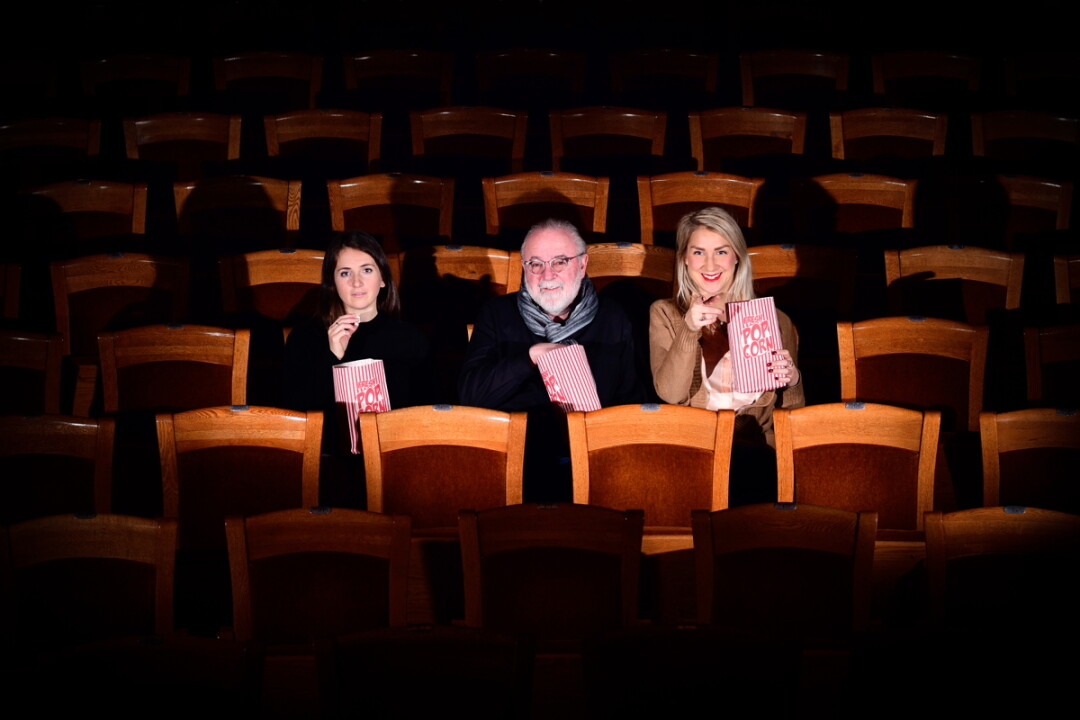Fresh Film Festival: Historic theaters, walkability will enhance Red Cedar Film Festival
Lauren Fisher, photos by Timothy Mather |

The inaugural Red Cedar Film Festival will bring filmmakers and movie-lovers from near and far to Menomonie this July. Artists will compete for honors in several film categories, guest directors will screen their works and host Q&A sessions, students will gain valuable experience volunteering and networking, and guests will explore film as art and as entertainment during the five-day extravaganza.
When Dr. Peter Galante gave a presentation at UW-Stout in 2016 about the benefits of hosting a film festival in Menomonie, Anna McCabe, outreach manager at the university’s Discovery Center, knew she could help make it happen. She made the first move that year, offering to partner with Galante, but it wasn’t until the pair connected the following year at a professional development event that they began to plan the Red Cedar Film Festival.
“It’s really a synergetic kind of experience here,” Galante said. “It’s a win-win for everybody involved.” The festival will take advantage of two grand theaters listed on the National Register of Historic Places: The Mabel Tainter Theater and UW-Stout’s Harvey Hall, providing viewing experiences that will truly set the festival apart. The organizers, who include Rebecca Thacker of the Discovery Center, are also planning to use the Wilson Park bandshell for outdoor screenings under the stars. All three main locations are within walking distance of each other, of campus, and of hotels and restaurants, making the festival easy to access and enjoy.
The event will kick off with a gala where locals and guests can get to know one another and talk movies, and opportunities for connection continue into the following days. Professors and artists will offer workshops and seminars for students to soak in. “It’s completely hand-in-glove with respect to the educational component,” Galante said. “It’s what you should be doing if you’re going to be teaching film; you should show films!”
Galante believes the film festival will serve as a complement to Eau Claire’s booming music scene, exposing people to new narratives and styles. “The kind of films we want to show are not the films you’re ordinarily going to see,” he said “These are more art films, you won’t find on Netflix, you won’t find in the local movie theater.” The festival will even celebrate Midwestern culture and artists with a special category called “Midwestern Roots.”
But it won’t just be aesthetically enriching, the crew said. “We’re gonna bring money to Menomonie – That is the most important thing,” Galante explained. “Travel and tourism is a big thing, so the hotels and the restaurants, they’re the people that are going to benefit most directly, most immediately.”
McCabe explained the value of the arts for drawing in visitors, who infuse the local economy with cash by patronizing local businesses during their stay, and even attracting new residents looking to put down roots. Menomonie businesses and industries are actively investing in promoting enriching experiences and opportunities in order to maintain and grow the local workforce.
In the next several months, the organization will recruit sponsors, invite guest filmmakers, and lock in venues and volunteers. “We’re not building a building and spending ridiculous amounts of money; this is grassroots,” Galante said. That organic feel, combined with the festival’s centralized, walkable events, could cause the project to really take off, he said.
“It’s going to take time, there’s no doubt about that,” McCabe said. She, too, is confident it has the components of a successful film festival. “I don’t know how it could fail,” she said.
The Red Cedar Film Festival is currently accepting submissions from filmmakers via Film Freeway. All submissions must be performed or subtitled in English. The early bird deadline for submissions is Dec. 29, while the regular and late deadlines are Jan. 29 and March 30, respectively. For more information about the film festival, or about submitting entries, visit www.redcedarfilm.org.






















